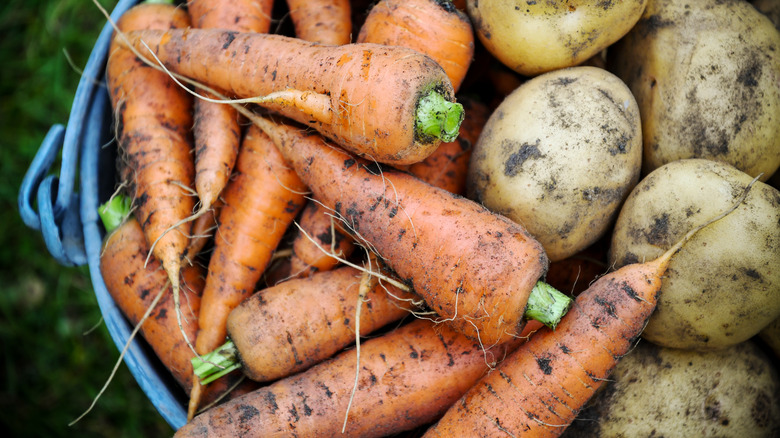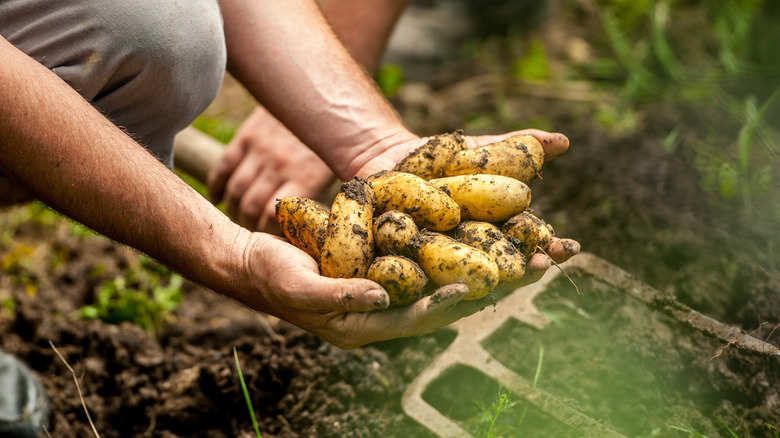Why Potatoes And Carrots Belong Together In The Kitchen But Not The Garden
If you enjoy gardening and cooking, you may have heard the phrase, "what grows together, goes together." This statement is often used to help cooks remember that foods grown in similar climates, habitats, and seasons generally have complementary flavors and do well alongside one another in dishes. While this can definitely help you figure out food pairing for your meals, it doesn't always work in reverse. Potatoes and carrots are one example of this. Something about the earthy and sweet flavors blends together well, especially when combined with the right herbs. However, though they taste delicious when mixed in sheet pans, pot roasts, roasted as a side dish, and more, carrots and potatoes don't do all that well in a garden beside each other.
This is for a few reasons. Notably, these two vegetables have different requirements. Carrots don't do well when the soil around them is dug up prematurely, such as during a potato harvest. Since they are root vegetables, they also end up competing for space and nutrients, inhibiting both of their growth and keeping them small and not as flavorful as they could be.
Health is another common issue, as they have similar pests and diseases. By planting them close together, it increases the risk of them both getting attacked and becoming an easy meal, just like the disease cucumbers expose potatoes to when grown together. The best option is to actually plant carrots in a later season. Potatoes do well at making the soil soft and loose for other root vegetables, such as carrots. The timeline works out, as potatoes do well when planted in early spring, and carrots are better planted near August.
What to plant with your potatoes and carrots instead
Potatoes don't do well with carrots, other plants that grow under the earth, and are one of the popular vegetables you shouldn't plant next to tomatoes. That said, there are quite a wide range of other fruits and vegetables they get along with. Garlic, beans, cauliflower, broccoli, strawberries, and spinach are just some of the choices you have available to you when deciding what to grow alongside these hardy roots.
As for carrots, a few choices are garlic, chives, leeks, radishes, peas, and sage. Some of the stronger-smelling plants on this list are highly ideal because they help to keep away pests that would otherwise enjoy munching on this vegetable. However, while certain herbs thrive alongside carrots, there are some herbs you want to keep far away. For example, carrots and dill are two plants you never want to grow together in your garden.
Knowing what does and doesn't produce well when planted next to each other is called companion planting, and it sounds pretty complicated at first. While it does take some research, it really comes down to choosing plants that have similar water and seasonal requirements, and won't compete for space and nutrients. Insect attraction is something you have to consider as well, but if you intersperse some insect repellent plants, that's not quite as big of an issue. Besides, your research will take you a long way and provide you with much healthier plants and a higher yield of your favorite fruits and vegetables.

